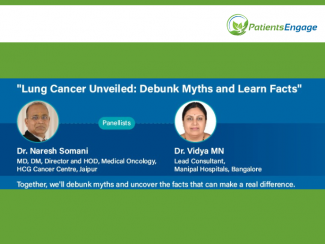
Sweta Tiwary, Volunteer, Mentor and Trainer at Connecting NGO, Pune, a suicide prevention helpline talks about how the nature of distress calls changed during the ongoing pandemic. And how callers have been impacted by the media coverage of Sushant Singh Rajput.
*TW: Discussion on causes of suicide and feelings of people in distress
Have you kept your helplines open through the lockdown?
Yes, we have. We are offering telephonic and email support. Walk-in service is temporarily not available.
What has been the response? Has it been consistent?
The initial few weeks were a little quiet. But it suddenly picked up and there was a sharp increase in the number of calls and emails. The weekends, particularly, have been extremely hectic.
Have you kept your lines open for health workers too?
The Helpline is not meant for any specific organization or work group. Any person who is going through emotional distress and/or feeling suicidal can call/write to us.
Can you tell us about the nature of the callers?
To understand the magnitude of the pain, we see if our callers are no-risk, low-risk, medium-risk and high-risk.
A few weeks after the lockdown, we received a number of medium to high risk callers. Few of the causes of their distress were (not in any order of importance):
- Fear of uncertainty
- Loss of job
- Financial instability
- Relationship issues
- Psychiatric conditions
- Abuse
Has there been an effect of the Sushant Singh Rajput case or the news emanating about the calling patterns? What is the effect you are observing?
Yes, it has been both a catalyst and a deterrent.
I remember 3 calls:-
a) Like, one caller felt so hopeless after the SSR suicide that his own ideation grew in intensity. He said "when people like him didn't get what they deserved, what chances do I stand?"
b) The caller was going through a painful break up and had made 12 unsuccessful attempts in a span of 20-25 days. He was planning another attempt when the news of SSR came out. His mother was heartbroken because SSR was of the same age as the caller. Everytime she looked at the news, she said things like "If she could do anything to get him back, she would....what his mother's soul must be going thriugh....how his family must be broken....why did he do it, did he not think of his father"
Looking at how his distraught his mother felt, he decided never to think of ending his life. He said he would never want his mother to go through a pain like this.
On the day of the call, 2 months had passed since his last attempt.
c) The caller was going through difficulties in his career. He would often get suicidal thoughts and would often feel like harming himself. After SSR's suicide, he felt a sudden connection with him as well as concerns for his family. He could see things in larger/different perspective and could feel what they all meant to him. Though the thoughts of suicide were still there, he felt more certain and confident that he would not succumb to them. His family didn't deserve any blame or scandal.
How have you reached out to people? What has been the impact of people not being able to walk in to your center?
We have reached out primarily through social media.
So far, we have not received any call or email showing disappointment over not being able to walk-in.
What has been particularly disturbing about the calls during the lockdown months/post lockdown?
A few calls left us feeling helpless. We, collectively, felt concerned since the number of calls in waiting while the volunteers were engaged with other callers has been considerably high. For me personally, calls around abuses were a little hard.
What would your advice be for people close to a person feeling suicidal?
It is hard to support a loved one going through suicidal feelings. It can be overwhelming and can take a big toll on the care giver too. When we receive calls from people supporting/seeking support for someone who is feeling suicidal, we invite both of them to speak with us whenever they feel heavy.
In our awareness sessions, we talk about few of the dos and donts. E.g. don't leave the person alone, speak with someone who can support both, encourage the person to reach out and find help/resources.
Even though each case merits its own advice, what would you tell people who are getting suicidal because of
- Loss of job
- Domestic abuse
- Academic struggles
I don't know. We don't tell them anything. We offer them a loving, caring and a safe listening space that allows them to sift through their own emotions.
You can find a list of suicide prevention helplines here: https://www.patientsengage.com/resources/suicide-prevention-helplines-india






